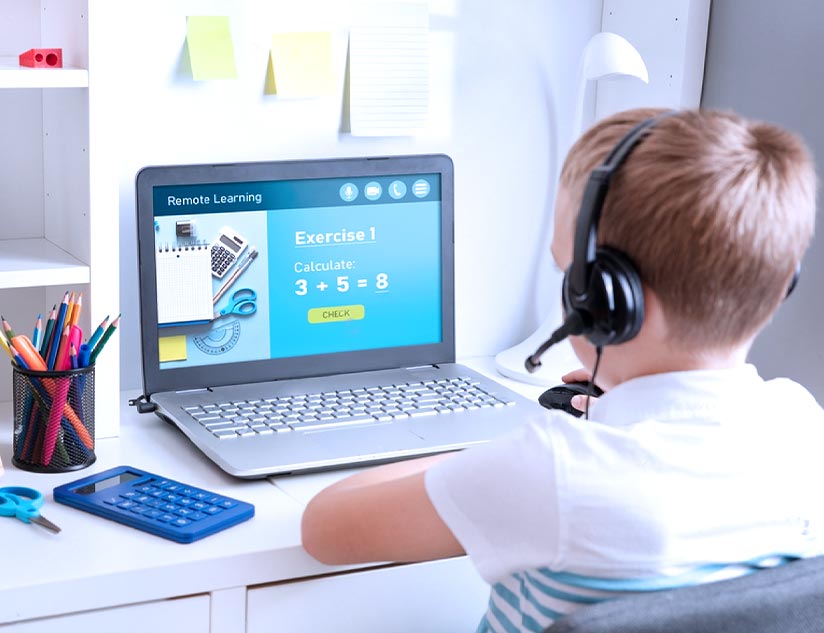The Evolution of Assessments in the Digital Learning Era
October 26th, 2023
According to UNESCO, “Assessment is a critical component of the education system, as it provides feedback to learners, teachers, and stakeholders on learning progress and achievement.”
The entire education paradigm is undergoing massive technology-driven transformation. How can assessments be left behind? The US EdTech Top 40 Report, 2022-2023, mentions that “classroom response and assessment” are the most adopted educator-focused product category at 12.5%. Propelled by its ability to facilitate teachers in adjusting their instruction methodologies and content according to learner requirements.
Technology-enhanced assessments improve evaluation efficiency, eliminate subjectivity, enhance accuracy, and accelerate feedback. Further, digital assessments provide a comprehensive picture of learning success, and efficacy, which traditional formats don’t.
Explore how you can enhance your digital learning platform with advanced AI-powered assessments.
For Publishers and Educators
Educators and publishers both play critical roles in ensuring the delivery of the highest quality of education. While educators have pedagogical expertise and are best suited to determine the frequency and type of assessment for diverse learners, publishers help translate these insights into content and question banks. EdTech providers facilitate course developers and educators to turn these materials into reality through technology. As publishers collaborate with technology providers directly, they are responsible for communicating the specific requirements of a particular learning group based on demographics, regionality, culture, etc.
Benefits of Digital Assessment
Digital assessments have immense benefits for transforming education.
Customization
Comprehensive online learning systems are equipped with AI and ML technologies that leverage student performance, learning speed, engagement levels, and special needs (if any) to recognize the most suitable type and frequency of assessment. Unique student evaluations can be effortlessly curated to assess diverse skills and knowledge levels.
Flexibility
Migrating assessments on a digital portal strengthens the anytime-anywhere approach to education. Custom and flexible assessments eliminate performance pressure and allow students to focus on acquiring and retaining knowledge and skills.
Real-Time Feedback
NLP and AI facilitate the automation of evaluations. This ensures real-time delivery of feedback. Further, continuous assessments per module or course enable timely intervention with additional resources and reinforcement materials to elevate learning achievement among slow learners. This also allows fast learners to gain additional knowledge with extra learning resources.
Cost-Efficacy
Attendance, objective marking, and grading eliminate teachers’ effort and administrative burden from repetitive mechanical tasks. Automating evaluation and feedback saves educators time, allowing them to focus on more value-added activities. Further, removing pen and paper models saves resources and reduces space requirements for maintaining massive student records.
Better Insights
Learning, intertwined with assessments, provides evidence of students’ thinking and learning assimilation on the go. Moreover, embedded within the learning process, continued assessments provide better insights into the efficiency of learning content in delivering the right education. It helps identify the required improvements in the pedagogy, assessments, and content to enhance learning outcomes.
Challenges of Automating Assessments
The most prominent challenge publishers face is a lack of technical expertise to adapt existing LMS to the evolving global learning landscape. Next comes the challenge of getting stakeholders and users on board with the advancements in education technology. This can be easily overcome with short and exhaustive training sessions.
Above all, lies the issue of maintaining the integrity of assessments. For instance, how do we ensure that students are not seeking help, not sharing question sets, etc.? Technology has evolved enough to monitor student activities while taking exams to assure stakeholders that the integrity of assessments is upheld. Preventing students from leaving the online learning platform during exams, keeping their cameras turned on, randomizing assessment sets, and many more solutions are employed to ensure that the essence and purpose of assessments are preserved.
How Can Publishers Support Adoption of Digital Assessments?
Recognizing that you, as a publisher, must take action, is a commendable first step. Next is collaborating with experienced technology providers to upgrade your content and LMS with embedded, flexible, dynamic, and diverse assessments. From MCQs to gamified questions and from descriptive to video-recorded answers, all kinds of assessments can be created and deployed to assess specific areas of all-round student development. These are also equipped with tutorials and up-to-the-minute developments to support educators in delivering the highest quality education with the most suitable formative and summative assessments.
Choose a technology provider experienced in bolstering the security of the LMS to facilitate compliance and prevent cyber threats. Integrating AI and anti-piracy measures ensures that student data and the learning system are secured across all touchpoints.
With the evolution and deepening penetration of digital learning, digital assessments have also gained massive traction. To stay relevant and achieve a long-term competitive advantage, publishers and edtech providers must embrace digital assessments. It is a time of personalized, anytime, anywhere education. This can be made possible only by adopting emerging technologies in collaboration with industry experts. MagicBox, one of the leading learning technology enablers, provides exhaustive as well as plug-and-playable modular augmentations for existing digital learning environments. Contact the experts now to redefine education and assessments with state-of-the-art technology and superior compliance.













